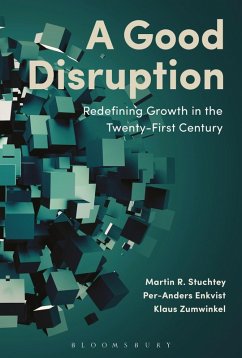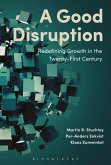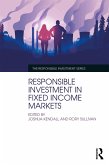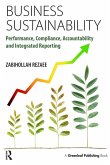A Good Disruption describes how disruptive technology can be used to combat the economic challenges of our age and sets out an inspirational vision of a more effective and sustainable growth model.
Disruptive technology is one of the defining economic trends of our age, transforming one major industry after another. But what is the true impact of such disruption on the world's economies, and does it really have the potential to solve global problems such as low growth, inequality and environmental degradation? The provocative answer is that such disruption could indeed solve many of these issues, but that it won't... at least, not on its current trajectory.
A Good Disruption highlights some of the huge costs that are at stake, and argues that managing such disruption will be the defining business challenge of the next decade. In order for us to meet that challenge, the book sets out a bold and inspirational vision for a more robust and sustainable economic model.
Rich in relevant case studies, and incorporating industry examples from around the world, A Good Disruption accomplishes the remarkable feat of synthesizing key contemporary trends into a coherent world view of how to seize the potential of our collective futures. This is essential reading for policy makers, politicians, business executives and social scientists, as well as anyone who wants a deeper understanding of the impact of disruptive technology and how it can be transformed into a major force for the global good.
Disruptive technology is one of the defining economic trends of our age, transforming one major industry after another. But what is the true impact of such disruption on the world's economies, and does it really have the potential to solve global problems such as low growth, inequality and environmental degradation? The provocative answer is that such disruption could indeed solve many of these issues, but that it won't... at least, not on its current trajectory.
A Good Disruption highlights some of the huge costs that are at stake, and argues that managing such disruption will be the defining business challenge of the next decade. In order for us to meet that challenge, the book sets out a bold and inspirational vision for a more robust and sustainable economic model.
Rich in relevant case studies, and incorporating industry examples from around the world, A Good Disruption accomplishes the remarkable feat of synthesizing key contemporary trends into a coherent world view of how to seize the potential of our collective futures. This is essential reading for policy makers, politicians, business executives and social scientists, as well as anyone who wants a deeper understanding of the impact of disruptive technology and how it can be transformed into a major force for the global good.









